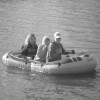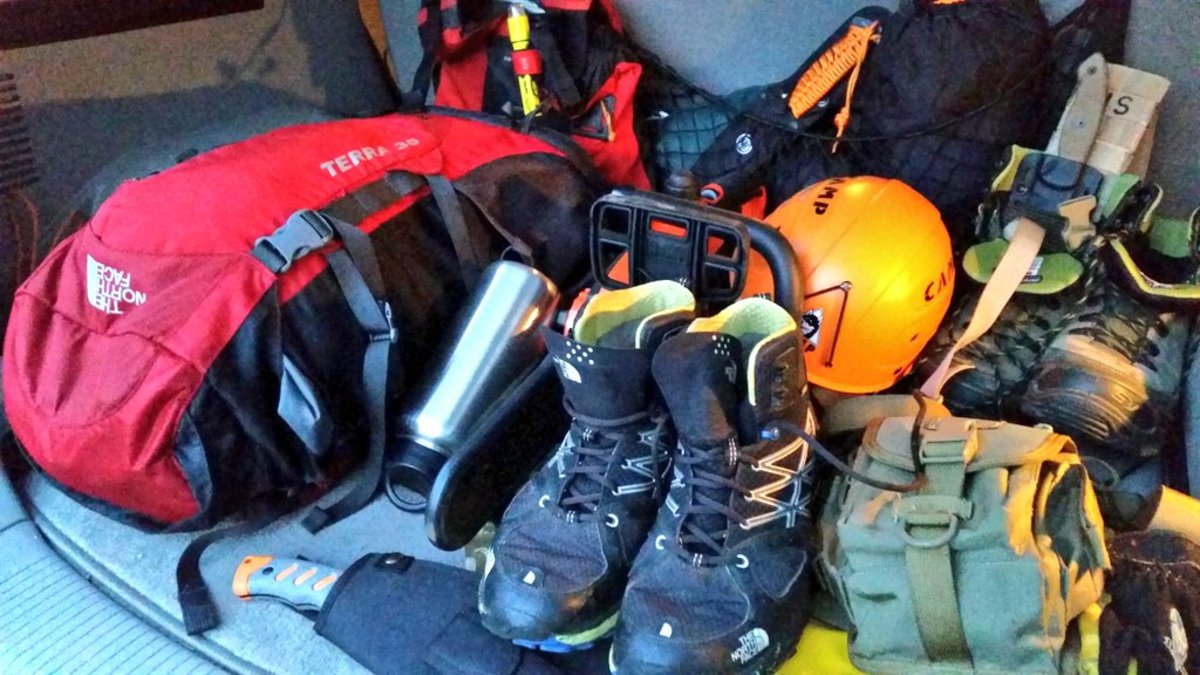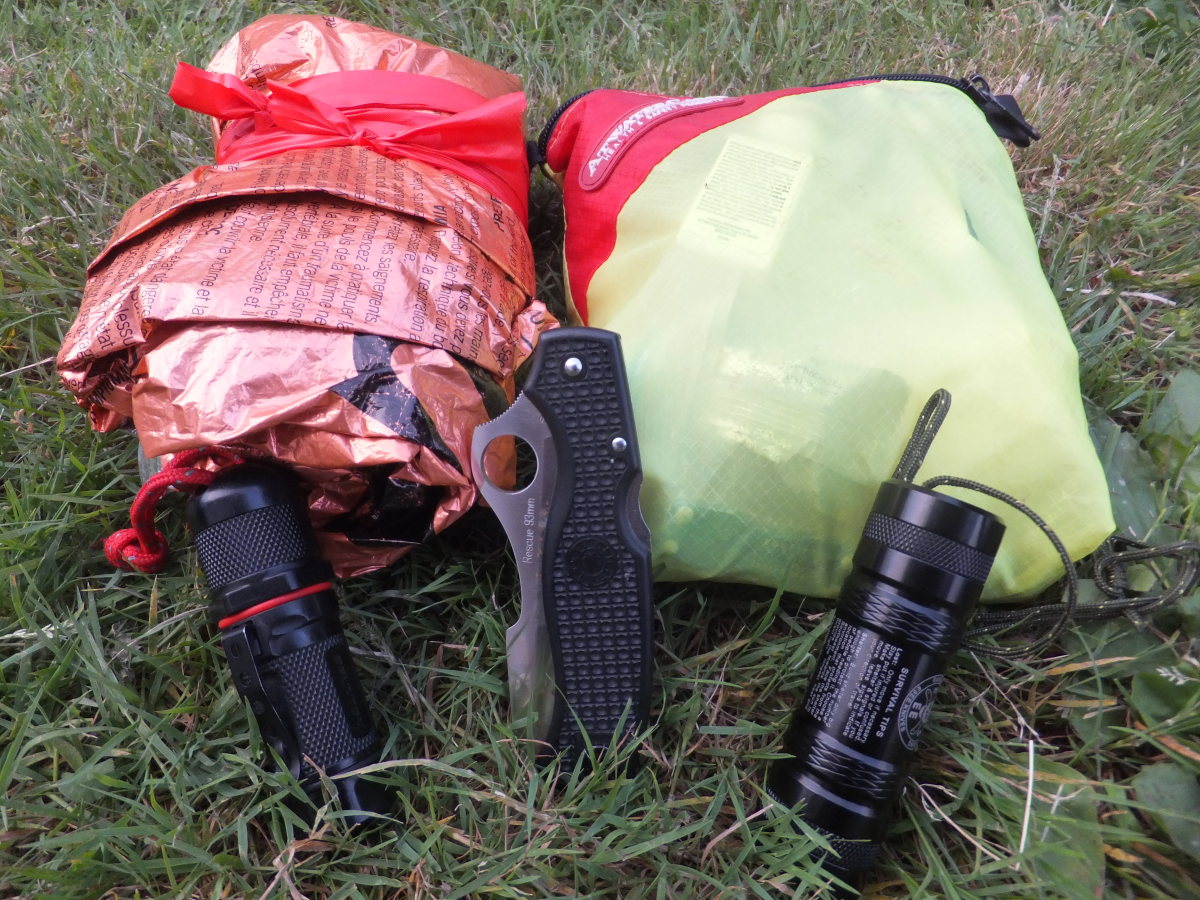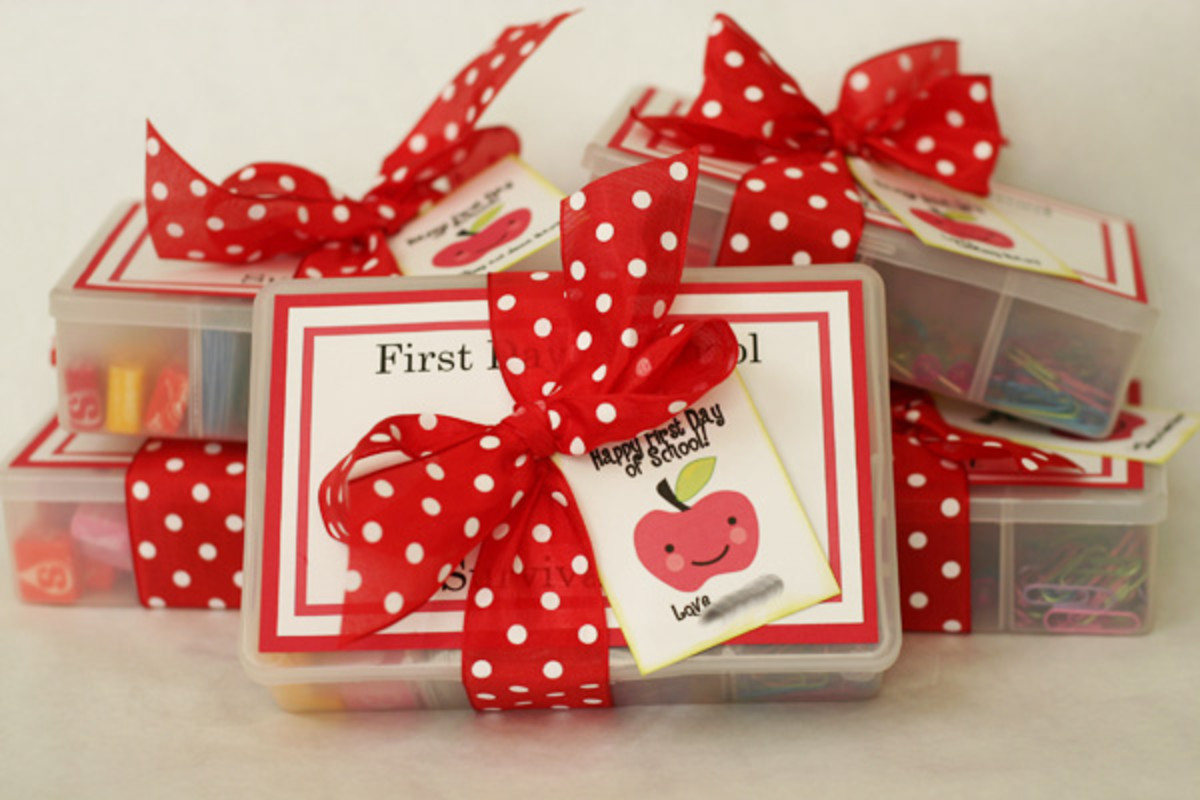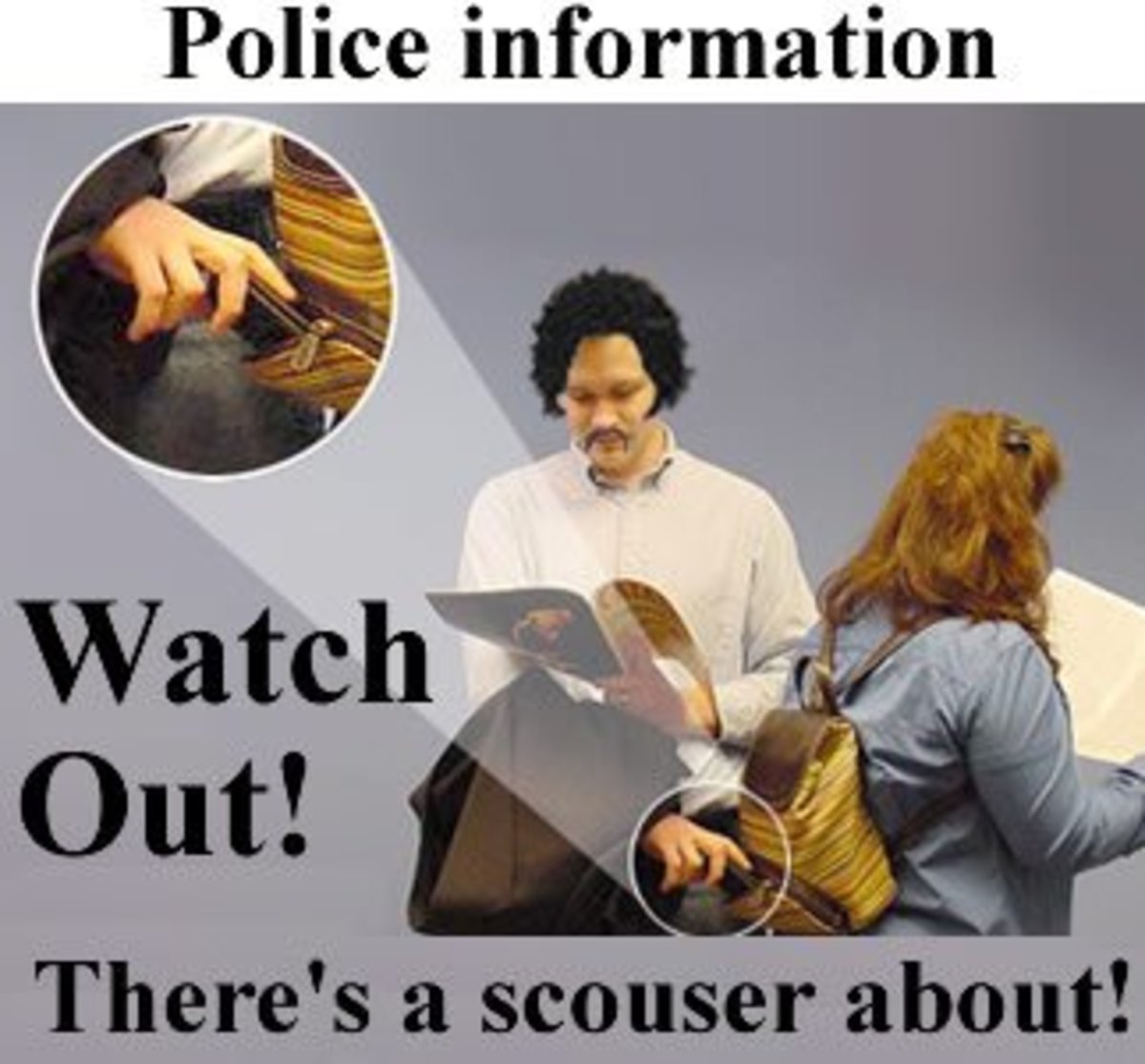- HubPages»
- Books, Literature, and Writing»
- Commercial & Creative Writing»
- Creative Writing»
- Humor Writing»
- Dark Humor
After the Zombie Craze: What We Can Learn About Being Prepared
Aftermath of Katrina
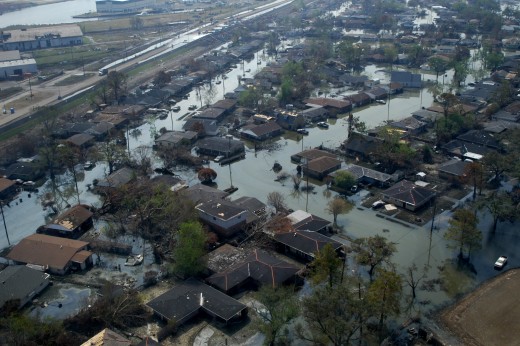
Preparing for the Apocalypse: Why Bother?
Though the zombie craze that swept the nation in recent years has somewhat died down, many remnants were left behind; Preppers, survivalists, and the usual end of the world conspiracy nuts. Despite hundreds of nihilistic predictions full of doom and destruction, the world hasn't ended (yet.)
So you might be asking yourself, why bother? What's the point in preparing for a zombie apocalypse that's probably never going to happen? Well, let me tell you what an old friend told me: "If you're prepared for a zombie apocalypse, you're prepared for anything."
To see the importance of that old Boy Scout motto, "Be Prepared," we need look no further than recent natural disasters such as Katrina or the Colorado wildfires. Let's look at Katrina, specifically. Thousands were left without food or water, stranded until help could push through the massive destruction. Even then, the government itself was unable and unprepared for the sheer masses of people that needed help.
If each and every one of those people had been prepared for a flood, or just had a little food and water available, we might have been able to avoid dozens of deaths.
Air Crew Survival Kit
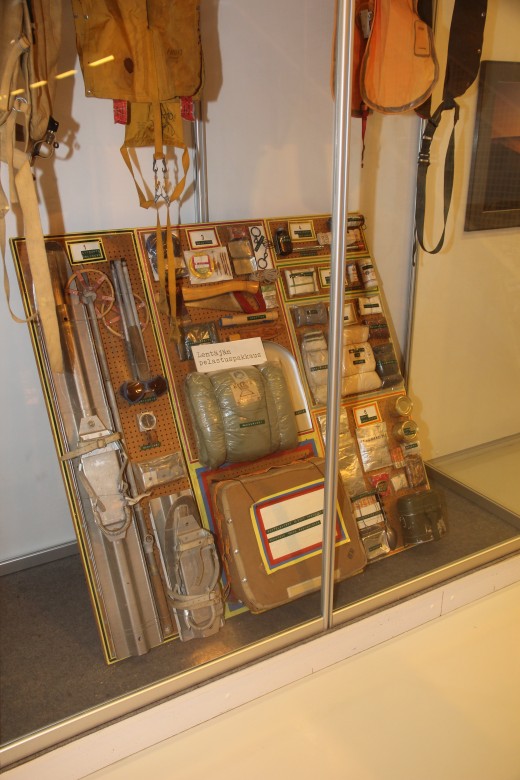
Survival Basics: Three Things You Need
- WATER. Obvious, perhaps, but very few people realize just how hard it can be to find clean drinking water outside of a faucet or bottle. A few purification tablets or even a simple pot for boiling water can go a long ways in an emergency.
- FOOD. Though the human body can survive many days without it, we begin to lose our cognitive abilities after only a few days of fasting. Keeping a can or two of chicken noodle soup around for when the lights go out is not only comforting, but life saving.
- SHELTER. Living in our giant houses, we forget what being exposed to the elements is really like. If the windows break and the heat goes out, having a tent and sleeping bag are a must. Heat is also a must, and knowing how to start and maintain a fire safely is a skill everyone should learn.
So What Do I Do? Buy A Survival Kit?
Though a well stocked survival kit can be useful in a real emergency, 99% of the time it just sits there, wasting money and space. Just buying an off the shelf kit is not the answer. A true "survival kit" is less "fancy gadgets I'll never use" and more "useful things I could never do without."
Most people in America have at least one car, and the car is the perfect place for an emergency kit. If and when you breakdown, having the tools to fix your car, get help, and waiting until help arrives is invaluable. Your vehicle probably already has a jack and a spare tire, but why not throw in a cheap rachet set and some common parts? Even just duct tape is a great item to have. I know people who broke down in the middle of no where and fixed their vehicles well enough to get back to civilization with a coat-hanger, some duct tape, and a half gallon of water.
The point is to be prepared for whatever situations you might encounter. If you live in the northern states, blankets and heavy jackets are probably pretty important. If you live in flood prone areas, a floatation device might not be a bad idea. For those in the hot, deserted Southwest,carrying five or ten gallons of water is a necessity.
Military A.L.I.C.E. Pack
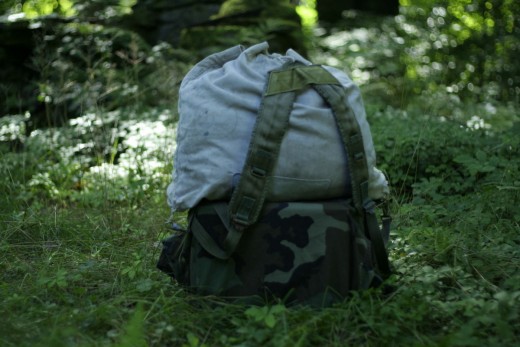
What Goes In An Emergency Kit?
Let's start with the kit itself. A simple backpack is all you really need. If you have the space, a duffel or surplus military pack might be the way to go. Either way, having a container to keep supplies organized and easy to access is very important.
Now, what should we put in there? Let's say you spin off the road in severe weather, a blizzard or hurricane. You might have to wait hours or even a day before help can get to you. A few bottles of water and food will not only keep you fed, but keep your spirits up too.
Basic tools are important as well. Besides the rachet set previously mentioned, a simple pocket knife and hatchet are must haves. Throw in a few strike-anywhere matches and a lighter, and you're ready for almost anything winter can throw at you. There is something to burn in almost every corner of the U.S., and if you become stranded after a blizzard, a fire could very easily keep you alive.
So what about summer? What can we do about the sun and heat? Well, the first and most important thing is water, and lots of it. Two or three gallons of potable water are your only line of defense against dehydration. Not only can you drink it, your car can also. If your radiator becomes damaged and your engine starts overheating, a few gallons of water will probably be enough to keep the car running long enough to get help.
Finally, you need to consider medical supplies. A few bandaids and some gauze can go a long way. If you want to, and have the training, build a more comprehensive medical kit. Even taking a class in CPR might save a life, and not just during a nation-wide crisis.
What About Guns?
Though this may be a touchy subject, we must discuss whether or not having a gun is a good idea. Many 'survival experts' mandate that every emergency kit have a firearm. That is terrible advice. Everyone should not go out and buy a gun to throw in their trunk, especially if they have no previous experience with such weapons. Guns make many people uncomfortable, and in some places it's illegal to have them in your car.
However, if it is legal and you are comfortable with them, a firearm can be a useful addition to your kit. If you run out of food in a very remote area, hunting is a very real and useful way to stay alive. And as much as we dread thinking about or discussing the possibility, in a crisis, some people will use the situation as an excuse to loot or steal. You should never, ever shoot at someone if you can avoid it, but in cases of life or death, just having a weapon can be a powerful deterrent against thieves.
A List of Supplies And Their Many Uses
- Mylar Survival Blankets: You can use them as a thermal blanket as is intended, or you can use them to make a solar oven, a signalling device, or even as a reflector in your car's windshield to protect the interior.
- High Proof Vodka (over 100 proof): Obviously, don't keep an open container around, but vodka has a million and one uses. First off, it's flammable, so in case you need to start a fire, all you need is a lighter and your clear Russian pal. Second, it can be used as a very effective disinfectant, so for cuts and scrapes, pour a little on the wound to clean it out. It might hurt, but infection hurts more. Third, it makes a great household cleaner. Sure, it might not be as glamorous as a Molotov Cocktail, but those shiny windows are enough of a reward.
- Snack Foods: All the things that make snack foods terrible for you in everyday life make them great in survival situations. They keep well, they're high in calories, and, in a pinch, you can burn Fritos! Go ahead and try it, but be sure to have a fire extinguisher handy.
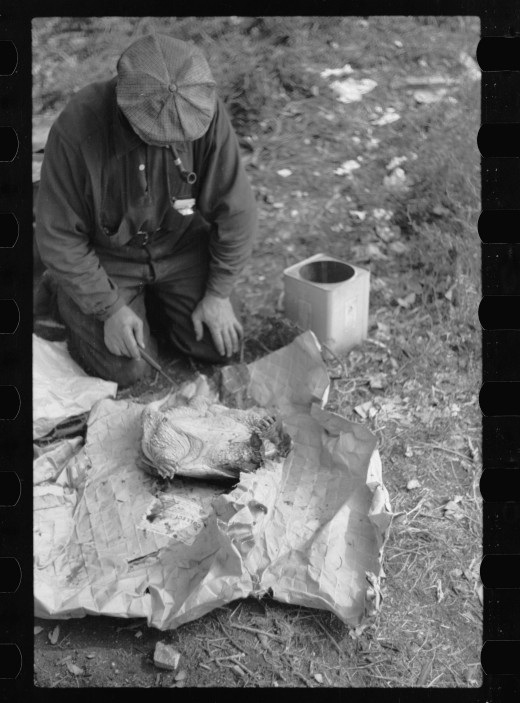
The Most Important Tool: You
Setting aside the obvious pun, you really are your greatest tool. Having a tool set or an axe is great, but without knowing how to use them, you might as well have a pointy stick. Basic skills and knowledge go a long way toward keeping you safe and sound.
The most important thing is to know what is in your kit and how to use it. Plenty of books and articles already exist to help you learn dozens of useful skills, from starting a fire with nothing but an axe to building a tent with sticks and duct tape.
Not only that, but these skills can be applied in every day life as well. Learning the basics of automobile maintenance and repair can save you hundreds in mechanic's fees. Just changing your own oil can save you a chunk of change.
Ok, So I Have Tools and Know How To Use Them... What Now?
You've completed the basic survival kit and learned a few useful skills. Where to now? Well, consider expanding what skills you already have. If you're not much of a camper, try it sometime. It might be fun. Just starting to change your own oil? Try something a little more difficult, like changing brake-pads. Already have food, water, and a pocket knife? Throw in some survival blankets and a pup-tent. Just keep working on improving on the skills and supplies you have.
That's all there is to it. Congratulations, you are ready for a zombie apocalypse. Good luck.
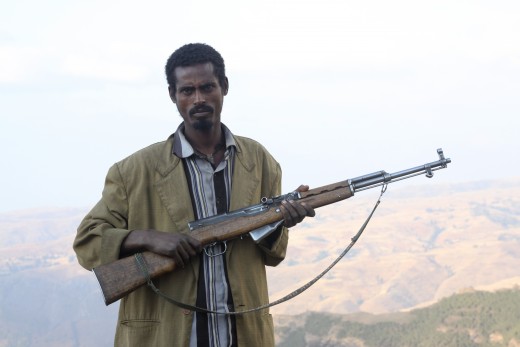
Extreme Situation Experience
Have you ever been in a survival situation?
Great, I'm Ready. What Good Does That Do Me In Everyday Life?
All these skills, all these tools you've been developing are not only for use in emergencies. You can use them every day, and not just for yourself. You can be the guy that everyone depends on when they need help. Whether it's helping your cute co-worker change her oil or handing out water bottles to a couple in a broke-down car on a hot day, everything you have and learned can be applied to improve your life and the lives of others.
Being prepared isn't just about having the tools to survive a zombie apocalypse, it's about being ready for every day scenarios. After all, everyone loves someone they can depend on.
